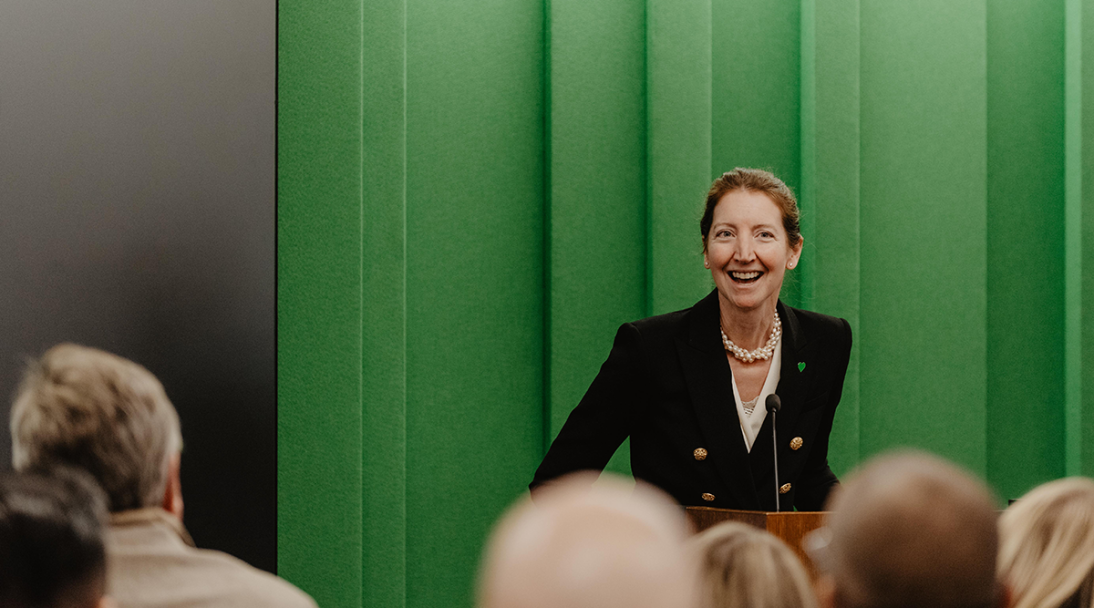As Chief Economist and Senior Vice President at TD Bank Group, Beata Caranci has built a career centered around curiosity, adaptability, and a passion for understanding the complexities of the global economy.
Her journey into economics was not one meticulously planned but fueled by the goal of following her curiosity.
“It’s as simple as that,” Caranci said. “Economics teaches you how to ask questions and think through problems. It doesn’t necessarily say, ‘here’s the absolute.’ Your mind is trained to think about all the aspects of an outlook, not just the path you think you’re on, but all the things that could pull you off your path.”
Bridging Complexity and Clarity
Caranci’s ability to distill complex economic frameworks into accessible insights has defined her career over the past 20 years at TD.
She emphasizes the interconnectedness of the economy—how consumers, businesses, government policies, and central banks interact.
One of her greatest rewards has been helping others navigate economic complexities.
“I think the way I’ve been rewarded in my career is the notion of taking a complex problem and trying to get it into bite-sized pieces people could think through,” she shares. “Give them the tools to make decisions on their own by helping them understand how you’re thinking about the problem rather than necessarily telling them the solution.”
Caranci’s humility is evident in her acknowledgment of the inherent uncertainties in economics.
“You are going to be wrong on the forecast," she admitted. "You have to have a lot of humility to be an economist.”
A Champion for Curiosity and Lifelong Learning
Throughout her career, Caranci has championed the power of curiosity and the importance of continuous learning.
Early in her journey, she contributed to research on women in the workplace, a project she recalls fondly as a moment of mutual learning with her then-chief economist. Now in a leadership position, she continues to learn from her team.
“They get to spend their 40 hours looking at something in detail, and I get to be the benefactor of listening to it and challenging it," she said.
For Caranci, the world of economics is ever-evolving.
“The world is not the same from day to day, and nor are the economic relationships. They morph and change over time,” she notes.
Inspiring the Next Generation
Caranci’s influence extends far beyond the boardroom. She is deeply moved by the impact her work has on others, particularly young women and students of economics.
“I’ve had people come up and comment that their children are taking economics because they heard me speak,” she shares.
One story, in particular, stands out: a second-year university student struggling with the rigorous math and calculus components of economics.
Caranci encouraged her to persist, assuring her that her third year would bring a turning point. “She called me up and said, ‘You’re absolutely right,’” she recalled.
These moments of influence remind Caranci of the privilege and responsibility that come with her position.
“For you, it’s just a conversation, and for them, it’s something more meaningful in their life that lasts for a long period," she said.
Leadership Beyond Economics
In addition to her work as an economist, Caranci has embraced leadership roles that extend into areas such as inclusion and community-building.
As Executive Lead for the Enterprise TD Disability Inclusion Network, she finds inspiration in the opportunity to learn and grow through new experiences. “At first, you’re like, ‘Why me?’ And then you’re like, ‘Oh, this is fascinating.’”
Caranci believes that leadership is about more than driving profits—it’s about creating positive change within organizations and the broader community.
“There is an expectation on the bank, on leaders, to be influential and change-makers for the good, not just the bottom line of profits," she added.
A Legacy of Impact and Humility
Despite her accolades and years of experience, Caranci remains grounded. She admits to being surprised by the praise and recognition she receives.
“I never get used to people coming up to me after a presentation and commenting on how affected they are to see you as a woman leader and the chief economist of a major institution,” she said. “I always think about what I don’t know, not what I do know.”
Her journey serves as an inspiration to anyone seeking to navigate the complexities of their field while staying true to their values and passions.
